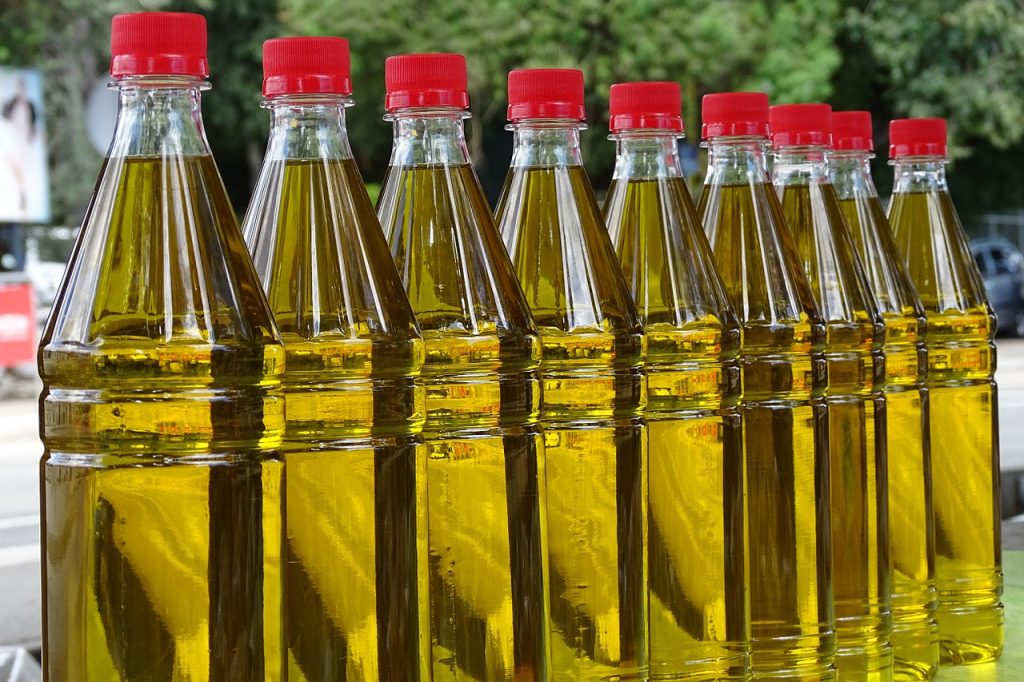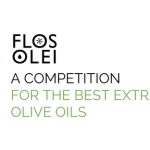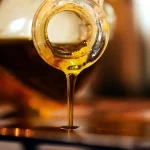Glas Istre reports that at the end of January, the Istria County Tourist Board launched a campaign and sent an invitation to all producers to apply for and deliver extra virgin olive oil for the new edition of the 2022 Flos Olei guide.
According to the Istria Tourist Board director, Denis Ivošević, they began collecting Istrian extra virgin olive oils much earlier this year to reserve the first spot at the tastings. He adds that it may sound unusual, but the order of evaluation is already significant for the outcome and maintaining the reputation of Istria as an international olive oil destination.
“The fact is that every year, more and more is invested in knowledge, but also the acquisition of new skills, so we believe that we will collect a record number of samples that will allow us to approach new records – not only in the number of listed Istrian olive growers but also that for the first time, one of the Istrian olive growers reaches the prestigious 99 points. This is the result we hope for, which would mean a lot to all of us and bring additional momentum to the development of olive growing and confirm the top reputation of Istria as an olive growing destination,” says Ivošević.
Recall that Istria has been part of this unique guide since 2005, when only two Istrian producers from the region were included. The Ipša family from Ipši and the Beletić family from Novigrad had the honor of being the first. The guide was then published under the name L’Extravergine, and from 2010 it changed its name and publisher to a new, today recognizable name, Flos Olei. Since the first edition of the guide under this new name in 2010, Istria has taken an important role and positioned itself as the second-best olive growing region, just behind Tuscany. However, every year the advantage of Tuscany was smaller. Finally, in 2016, Istria took the top spot that it has maintained to this day, but with a far greater advantage than Tuscany previously had on Istria.
“It sounds unreal, and I would say pretentious, but Istria has been declared the best olive growing region in the world for the sixth year in a row. How it looked last year is sufficiently shown by the fact that Istria had 71 olive growers and Tuscany 43. However, it is even more important that more than a thousand samples from all over the world arrive for evaluation, that a professional panel of verified tasters in the organoleptic sense tastes all the received samples, that after that, a selection of the 500 best in the world is made, which is impressive,” the director of the regional Tourist Board proudly points out.
The flattering accolades should be taken as motivation for further investment and growth.
“During the corona crisis, I would say the most challenging year in recent history, when there were almost no investments and those planned were stopped in time, only the field of olive growing, among the few, achieved what was intended. Thus, the largest investments were made to raise the quality of processing, storage, and the presentation and sale of Istrian extra virgin olive oils. Total investments exceed HRK 50 million, which is an extremely great achievement for such a specific, niche product. On the one hand, investments have been made in new modern and technologically advanced processing plants. On the other hand, investments have been made in architecturally interesting building solutions with designer-equipped new tasting rooms and boutiques. So last year, the Chiavalon family opened a new olive growing center in Vodnjan, a modern building that includes a special line of Mori olive processing, with a new cellar, tasting room, sales point, storage space. The Ipša family also continued with investments, which also opened an attractive olive growing center in Ipši near Oprtalj. It is a renovated and revalued traditional building where there is a new line of Mori olive processing, with a new cellar, tasting room, point of sale, Istrian tavern, and warehouse. The interim director of the Fund for the Reconstruction of Earthquake-Affected Zagreb, Damir Vanđelić, and his family have opened a new olive grove and center along the road from Bale to Rovinj. The new oil mill is also a refurbished and revalued traditional building housing the new Mori olive processing line, with a new cellar, tasting room, and sales outlet, combined with fruit and vegetable production, given that the olive grove center is located on a 67-hectare-large family farm.
We should also mention the significant investments of the Galić family, which opened a new cellar for extra virgin olive oils in Kostanjica near Grožnjan, a tasting room, and a sales point and a panoramic terrace, as well as Oleum Maris, where a new olive center opened along the road between Vodnjan and Pula. It is a modern building with a new basement and sales point and continues with a new tasting room and projections and a panoramic terrace. Finally, thanks to an investment by the Beletić family from Novigrad, a new, modern Pieralisi olive processing line was opened.
This list is only part, or the most significant investments of Istrian olive growers, with a handful of smaller ones that complete the picture of how much importance is attached to raising new olive groves, acquiring new knowledge and skills, improving production and the technological process, but also new models of presentation and sales of the final product – extra virgin olive oil of premium quality.
“In Istria, olive growing has become the ultimate question of identity and national pride!” says Ivošević.
“Olive growing in the broadest sense of the word is not just producing extra virgin olive oil. If we have proven that we are capable of producing high-quality extra virgin olive oil, that we know how to promote, brand, advertise, and sell it, we must certainly try in other disciplines that come from the basic product – olives,” says Ivošević, and delves into the areas where there is potential for further growth. He says it is the production of table olives, which is rarely used commercially on the Peninsula today.
“We have almost no serious producers who have found their niche or specialization in this area, and that is the part we definitely miss, especially since the demand for such a product is extremely high, especially given the developed gastronomy in Istria and Croatia. The use of table olives can definitely be used in a wide range of Istrian gastronomy presentation. For example, it can be used in various forms and techniques of preparation as an introductory greeting from the kitchen, as a separate snack, or in combination with other products as a supplement to various tastings. It can also be used as an appetizer, hot or cold, as an addition to the main course, and why not as part of a dessert? But, most importantly, we would avoid importing the worst quality of such olives, which we import almost without any quality criteria and health control,” explains Ivošević.
One of the directions is certainly a stronger focus on niche cosmetic production of olive-based boutique cosmetics. In this part of dedicated production, he recalls, we have pioneers who began using extra virgin olive oil in cosmetics, not only through sales in specialty stores but also in increasing use in wellness, beauty, and health treatments.
It is unnecessary to explain that extra virgin olive oil, in the way it is produced in Istria, is a natural product and contains many qualities. It is naturally rich in unsaturated fatty acids. It has a high content of phenols that have a beneficial health effect because olive oil polyphenols help protect blood lipids from oxidative stress. Extra virgin olive oil is also a natural source of tocopherol, a precursor of vitamin E, which helps protect cells from oxidative stress when present in sufficient quantities. Tocopherols in the presence of phenols act synergistically, i.e., enhance their antioxidant effect.
“It has long been known that extra virgin olive oil is a natural remedy, and now the globally known Jennifer Lopez has launched a cosmetic line based on olive oil “JLo Beauty Olive Complex,” which will certainly encourage some to try the same in that specific niche of cosmetics and natural remedies,” says Ivošević.
In the end, he says, the waste generated by processing olives can be used wisely, by using firewood seeds. In this way, the potential of olives would be fully used, and the problem of disposing of that waste would be partially solved.
“With new directions, such as this, Istria will show that in addition to the prestige in the production of premium extra virgin olive oil, we turn to other disciplines that include an extensive range of opportunities – from the segment of health, nutrition, and psychophysical fitness, beauty treatment and rejuvenation, wellness treatment, in the broadest sense of the word, all the way to sustainable and responsible development in terms of waste management for heating,” concludes Denis Ivošević.
To read more about lifestyle in Croatia, follow TCN’s dedicated page.











